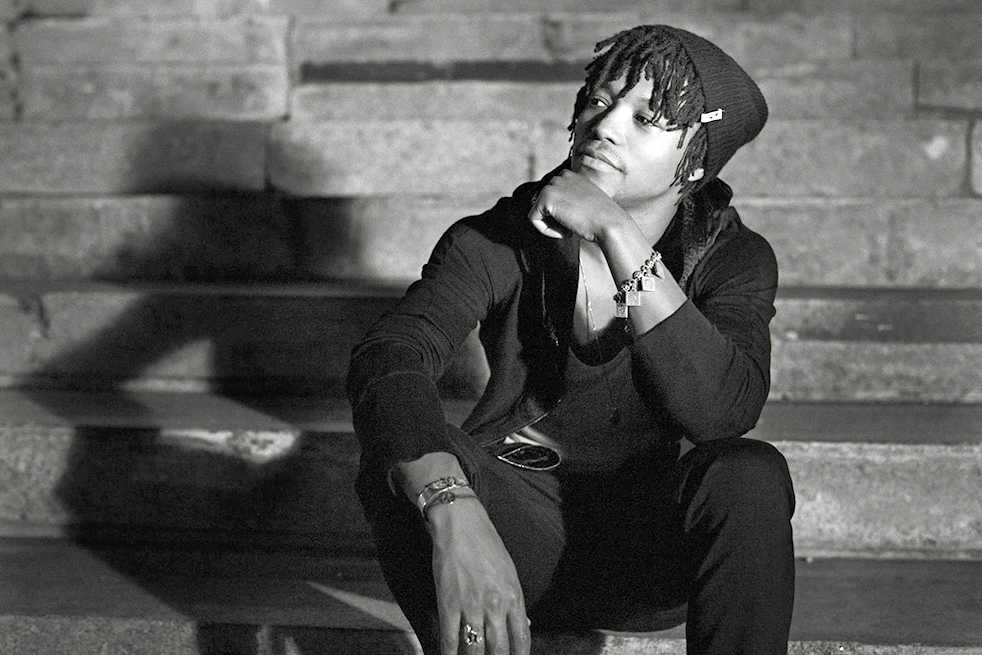On the surface, many factors seem to set apart Lupe Fiasco as a musician. Ever since Lupe stepped on to the scene, he has rapped about profound topics, collaborated with a diverse set of artists and continually ridden the line between being an independent artist and signing to a major
record label.
But going deeper past the facade of Lupe Fiasco, it is easy to see that his music is different from that of his contemporaries because he is different and always has been. Like many other rappers, Lupe is from the south side of Chicago and is all too familiar with its harsh realities.
The combination of a household that had deep devotion to education and culture, a father who is a member of the Black Panther Party and a fervent dedication to the Muslim faith inevitably resulted in a rapper who has something unconventional to say.
“Drogas Light,” Lupe’s sixth album, carries the same themes he has tackled before: American sociopolitical culture, perils of the black community and dedication to the teachings of Islam.
The album also introduces a few new themes and fresh sounds, allowing the listener to be part of an awakening foray into the mind of one of rap’s most interesting emcees.
After an initial listen, the first idea that the album brought to mind was the paradox of choice, which describes a situation in which people faced with many different options have a difficult time choosing what they want. Most assume that the more options one has, the more satisfied he will be with what he chose.
In reality, though, the person might be worse off because when there are many options, it is difficult to know whether the right choice was made. Some of the songs on “Drogas Light” seem to be missteps that could only have been a result of the paradox
of choice.
This concept surfaced within the context of the career of Lupe Fiasco. Characterizing his career are the many fights and tensions that Lupe vocalized about his previous label, Atlantic Records. They exercised unrelenting control over his rap career and are definitely partly to blame for the lackluster performance of 2011’s “Lasers.”
Now that Lupe has in-house handling for all of his production, marketing, distribution and management, listeners would hope that “Drogas Light” would be Lupe Fiasco unleashed and unfettered. He would finally be able to craft truly authentic works of art that would rival his first few albums in thematic complexity, musicality and sheer honesty.
Instead, the Lupe the listener hears is one who seems conflicted amidst the new level of independence that he has been afforded. Tracks like “NGL,” a lament for self-sabotaging behaviors within the black community, and “Tranquillo,” a testament to peace, positivity and tranquility, are definitely the tracks that long-time fans of Lupe will be happy to hear.
However, empty songs like “Wild Child” and “Pick Up the Phone” represent the type of work Lupe should have left behind at Atlantic Records. While these two songs, along with the other radio-friendly songs on the album, are not necessarily bad songs, their lyrical and thematic insignificance will leave listeners saddened simply because listeners have heard better from Lupe in the past.
Fortunately, the album overall still shines: by no means does it show a lack of the Lupe Fiasco that fans have come to know and love. The first nine tracks offer more than enough substance and enjoyable music.
Along with “NGL” and “Tranquillo,” highlights include “Dopamine Lit,” the requisitely hype album intro, and “Jump,” where Lupe puts to work his storytelling ability reminiscent of “Kick, Push” and the Grammy Award-winning “Daydreamin’.”
“Promise” is an interesting song that satirizes the sound of the recent new wave of rappers, such as Post Malone, Migos and Lil Yachty, with a remarkably similar style in its lazy delivery and song production. “Kill” is another standout song that has a groovy, calming beat behind the lyrics and features both a narrative and musical shift to keep the listener engaged and impressed.
All things considered, it seems that Lupe is approaching the tail-end of his career. About a year ago, he sent out a tweet saying “I get the hint God. Yo Lupe fans it’s been fun and I hope you’ve had fun. I’m officially not releasing anymore music. Albums cancelled.” The album he was referring to in that tweet was, in fact, “Drogas Light,” but fortunately for listeners, Lupe did not follow through on that promise.
According to the most recent rumors, this album is intended to be the first one in an album trilogy, supposedly being followed by “Drogas” and then “Skulls,” with many saying that “Skulls” will be Lupe’s last album.
If that is indeed the case, though very disheartening, the rap community can only offer Lupe Fiasco a sincere farewell.
For over a decade now, he has been pushing the anti-establishment political views and comprehensively unique music that it seems only Lupe can, and he has been trying to do it his own way ever since.
If “Drogas Light” is indeed the first installment of a final trilogy, it serves well as a primer to listeners, so that when he is ready Lupe Fiasco can go out with the bang that he owes both himself and his fans.
